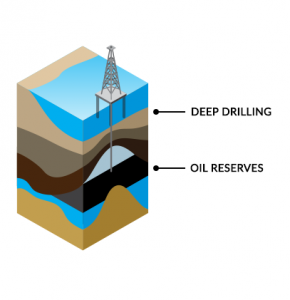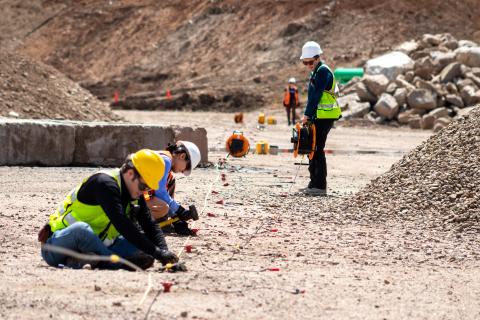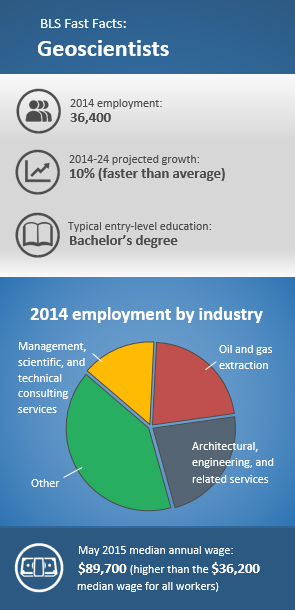All Categories
Featured
Table of Contents
Geophysical Survey: Plotting Buried Traces Of Human Activity in Scarborough Oz 2022
This work is progressively contracted out, so consultancies provide another source of employment. Consultancy companies vary in size, from really little companies to large multinationals. Some consultancies are rather specialised in using particular geophysical methods or operating in particular locations, while others use a more diverse series of services to their clients.
The extraction of gas from land fill sites is another area of work and this might grow in the future. Exploration companies might undertake work for construction companies, water companies, mining companies and ecological companies, so geophysicists might be utilized in any of these settings. Other companies include: geological surveysgovernment bodies and agenciesuniversities and research institutes.


Vacancies might be noted in the oil and gas sector press. Recruitment is impacted by oil rate variations and the level of competition for positions differs depending on this. Professions Days, which cover the complete variety of geoscience professions and are usually attended by a variety of essential market employers, are run by The Geological Society.
Geophysical Methods Commonly Employed For Geotechnical ... in Bayswater Aus 2022
Some of the big oil and gas business provide a complete two-year structured training program throughout the breadth of geophysics, consisting of the opportunity to experience operate in numerous teams prior to specialising in one area. Your training might consist of work on: existing wellsmagnetic and gravitational possible field data analysisresearchrock analysis. Nevertheless, it's more normal for your initial training to be offered on the task.

There might be a probationary duration during which you work together with an experienced coworker. Competency-based appraisals occur frequently in a lot of companies. In smaller sized firms, and for academic posts, there is not likely to be any formal training - you'll be expected to begin work straightaway and get abilities as you go along.
If you work for a smaller company, you might discover that you need to take responsibility for arranging and funding your own advancement and training. If you have a geology degree, subscription of The Geological Society can be beneficial for networking and for keeping up to date with the industry.
5 Surface Geophysics in Leeming Western Australia 2020
You may also find it useful to sign up with the PESGB (The Petroleum Expedition Society of Great Britain, which has a geophysics unique interest group. After a probationary period, and once you've gotten some experience, you could progress to senior geophysicist, then group leader and then into a senior role in management.
The ease of movement between functions depends on the business structure. Research study at Masters or Ph, D level in a subject associated to geophysics or geosciences may help with your profession advancement and development. The employment market within the oil and gas industry is really dependent on cost and this may affect your opportunities for career development.
Not all jobs are reliant on the oil and gas industries. For knowledgeable geophysicists, freelance consultancy offers a great route for profession advancement. You can likewise specialise in a specific location of geophysics. As a geophysicist, you're most likely to have numerous jobs throughout your working life. Worldwide movement is important for handling peaks and troughs in different countries at various times.
How To Become A Geophysicist in Seville Grove Aus 2020
From geophysics, it's possible to focus on seismology (completing further training to end up being a seismic interpreter) or to move into associated locations such as engineering geology or hazard forecast.
Choosing what to study in college is a difficult choice. Even if you know that your field of interest lies in science, what program of research study is right for you? If you make the decision to major in physical and life sciences and pursue a career as a geophysicist, you're preparing for an amazing and profitable profession.
But the initial step to attaining your goal of ending up being a geophysicist is earning a degree. Even for entry-level positions in the field of geoscience, you'll need a bachelor's degree (a geophysicist college degree) from a recognized college or university. Some research positions need candidates to hold master's degrees and even Ph.
What Do Geoscientists And Hydrologists Do? in South Lake Aus 2020
Doctoral degrees are especially essential if you plan to teach at a four-year institution. Geophysicists apply physics ideas and strategies to study the gravitational, magnetic, and electric fields of the earth. This enhances researchers' understanding of both the planet's interior core and its surface. Geophysicists need to be able to: evaluate rocks, photos, and other pieces of data perform research study both in the field and in laboratories produce maps and charts of their findings write reports To achieve all this, trainees need a specialized education for geophysicist careers.
As specified above, you'll need a bachelor's degree in geoscience or a related discipline, such as a physical science or a life sciences, to land an entry-level task. Students can also prepare by majoring in subjects like: Biology Chemistry Computer system science Engineering Mathematics Physics The above geophysicist majors use a more generalized approach to a single clinical discipline, however a lot of programs need students to take one or more geology course.
Latest Posts
Geophysical Surveys Definition & Meaning In Stock ... in Murdoch Oz 2023
About Environmental Geophysics in Middle Swan Aus 2022
Geophysicist Job Description in Australia 2021